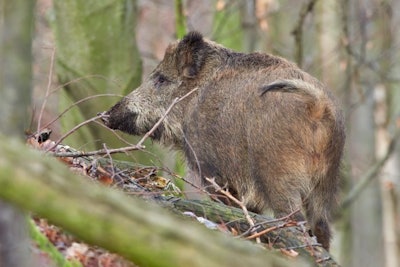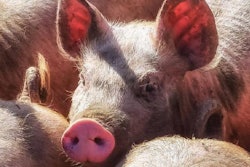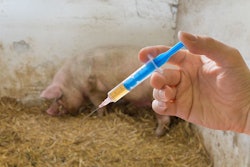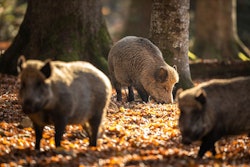
With 12 nations in central and eastern Europe reporting new cases over this period, the African swine fever situation in wild boar appears yet to be brought under control.
This month, Romania’s veterinary authority registered another African swine fever ASF outbreak on a commercial farm.
Affected was a herd with more than 42,400 pigs in the west of the country, according to the latest official report to the World Organisation for Animal Health (WOAH). Of these animals, 35 died. The premises was located in Timis, a county in the far west of the country. It borders Hungary and Serbia.
Furthermore, the ASF virus was detected in three backyard herds in the same part of Romania, and six elsewhere in the country. Each of these premises had between one and 57 pigs.
At the end of October, pigs at two commercial farms in eastern Romania tested positive for the ASF virus.
ASF situation in domestic pigs in Europe
Since January 1, the number of confirmed ASF outbreaks in domestic pigs in Europe has reached 478.
This is according to the latest results from the Animal Disease Information System of the European Commission (EC; as of November 4).
So far this year, 12 European states have officially registered one or more ASF outbreaks through this system. For comparison, 11 European states registered a total of 1,874 ASF outbreaks with the EC over the whole of 2021.
Registering by far the most outbreaks in 2022 has been Romania with 286, including 13 additional outbreaks confirmed over the previous week. After Romania comes Serbia — now with 99 outbreaks — and North Macedonia (28).
In mid-November, Lithuania confirmed an additional outbreak in domestic swine with the EC, bringing that nation’s total so far this year to 16. It was the first outbreak there since September 20.
Over the past week, Moldova’s authorities have officially declared the ASF situation resolved in Floresti. Directly involving a total of 12 pigs, ASF virus was detected in three backyard herds between mid-August and the end of September.
Guernsey restricts pork imports
This week, the government of Guernsey announced new restrictions on the import of pig meat and pork products. These were introduced to reduce the risk of introducing the ASF virus.
A Crown dependency of the United Kingdom (U.K.), the Bailiwick of Guernsey is one of the Channel Islands located off the south coast of England.
Under the latest restrictions, 2 kilograms is the maximum amount of pork that may be imported from Europe (excluding the U.K.) for human consumption or animal feed. For these applications, the meat must be in an unopened pack sealed by the manufacturer.
There is no restriction on the amount of pork that can be imported commercially. However, it must be health-marked, in the original sealed packaging, and imported by or delivered to a food business registered in Guernsey.
Europe’s wild boar total for year approaches 6,000
So far this year, 5,990 ASF outbreaks among wild boar have occurred in Europe, according to the latest update of the EC’s disease information system (as of November 4).
Registering one or more outbreaks have been 14 of the continent’s states.
Within the wild population, recording the most outbreaks with the EC in 2022 has been Poland (1,654), followed by Germany (1,348), Latvia (725), Hungary (497), Slovakia (471) and Romania (386). Further outbreaks were reported in all these countries since the previous update from this source (dated October 28).
Also confirming new cases were Bulgaria, Estonia, Italy, Lithuania and Serbia.
For comparison, 12 countries confirmed with the EC one or more ASF cases among the wild population — a total of 12,150 outbreaks — during the whole of 2021.
The EC does not monitor the disease situation in Russia.
This month, six wild boar in Rostov tested positive for the ASF virus. According to WOAH notifications, these were the first cases since September in this region of Russia’s Southern federal district.
View our continuing coverage of the global African swine fever situation.
















